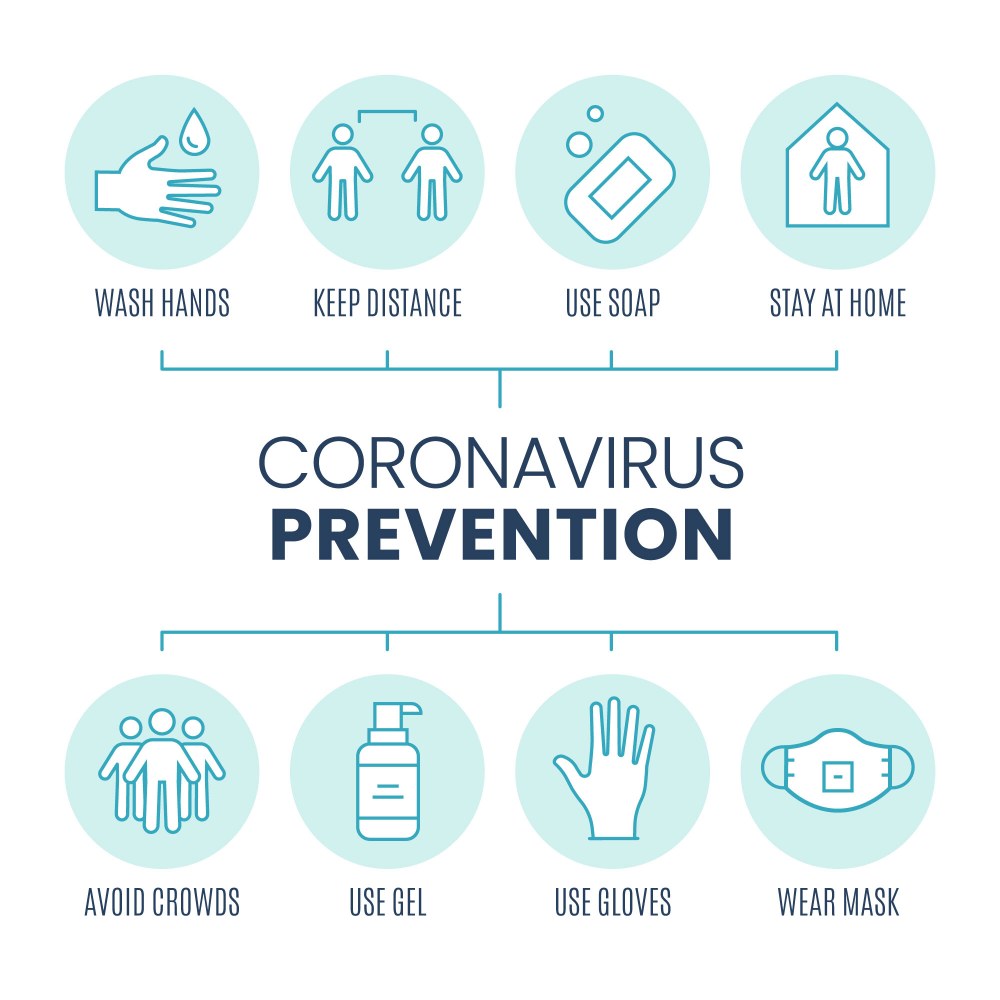People often want a “silver bullet” approach when it comes to infectious and communicable diseases, one magic pill to cure ills. However, we live in a complex world that requires a multi-faceted approach to prevent or mitigate infectious diseases. And just like your favorite Pennsylvania autumn outfit, the best public health policies are layered. This has never been more obvious than during the ongoing COVID-19 pandemic.

Coronavirus Prevention Techniques
People often want a “silver bullet” approach when it comes to infectious and communicable diseases, one magic pill to cure ills. However, we live in a complex world that requires a multi-faceted approach to prevent or mitigate infectious diseases. And just like your favorite Pennsylvania autumn outfit, the best public health policies are layered. This has never been more obvious than during the ongoing COVID-19 pandemic.
As has been evidenced during COVID-19 pandemic, it takes a community-wide approach to protect individuals. As Dr. Ruth McDermott-Levy, Professor and Co-Director of the Mid-Atlantic Center for Children's Health and the Environment at Villanova University noted, “COVID-19 is a tragedy and an opportunity. An opportunity to reflect on what can be improved moving forward.” She’s not the only expert with eyes to the future – Other experts such as State Public Health Veterinarian for the Pennsylvania Dept. of Health (DOH), Dr. Betsy Schroeder, emphasized that one of the most critical things COVID-19 has taught experts and non-experts alike, is that preparation is key. Dr. Schroeder highlighted that the best way to be prepared is systematic surveillance for new and emerging diseases, mantaining solid working relationships between the government and healthcare providers, and in particular, consistent communication with the public on prevention, mitigation, and risk.
The number of cases and hospitalizations continue to rise in the United States, especially as most universities and preK-12 schools are back in-person this fall and cold weather forces people inside. Even with the effort to improve indoor air quality and the appropriate use of disinfectants as promoted by numerous researchers and education projects such as Pennsylvania Integrated Pest Management Program (PA IPM) and Women for a Healthy Environment (WHE), the control and mitigation of communicable diseases is still of paramount concern in schools and universities as well as businesses.
So, what can be done? Fortunately, integrated pest management (IPM) is a formidable opponent to a multitude of pests, including crop diseases, household insect infestations, and even controlling pests of the viral variety as well, including COVID-19. For example, a layered approach is the best option when it comes to reducing the risk of infection and transmission of COVID-19 as well as other common fall and winter viruses, such as the flu and Respiratory Syncytial Virus (RSV). This includes common sense personal hygiene habits such as frequent handwashing, mask-wearing, and staying home when feeling ill. And as many experts agree, vaccinations are as close to a silver bullet as we can get. However, even with a vaccine, integrated public health measures are still needed as no vaccine is 100% effective 100% of the time. This layered approach is critical as new and more dangerous COVID-19 mutations such as the Delta variant, continue to emerge.
Many are wondering what the future holds. If it were up to public health professionals, several “lessons learned” would be continued and improved upon moving forward. These include four major facets of public health preparedness - education, access, communication, and regulation. An educated and well-informed populace is critical when communicating scientific concepts and risk factors. As Dr. McDermott-Levy emphasized, a “scientific- and health-literate population is crucial so that individuals can make informed healthy decisions for themselves.” She also highlighted the need for equitable access - access to healthy and safe indoor and outdoor facilities for exercise, clean air and water, healthy nutritious foods, education, and healthcare. Equitable access increases individual- and community-level resilience in the fight against infectious diseases. In addition to equitable access, public health experts agree that well-funded and well-maintained public health programs, including surveillance efforts, are crucial to prepare and mitigate future outbreaks. Appropriate regulations are also needed in order to mitigate ongoing or potential future health risks and hazards. Lastly, experts emphasize the importance of the continuation and improvement of layered public health measures at the individual level, including frequent handwashing, staying home when sick (and advocating for paid sick leave), limiting social contacts in times of increased risk and transmission, and masking when indoors or in close proximity to others. Everyone can make purposeful individual choices that affect our communities, by observing these public health measures we can choose to work together to protect ourselves and our communities.
Written by: Hannah S. Tiffin, hsg14@psu.edu
The PA IPM Program is a collaboration between the Pennsylvania State University and the Pennsylvania Department of Agriculture designed to promote integrated pest management in both agricultural and nonagricultural situations. For more information, call (814) 865-2839

